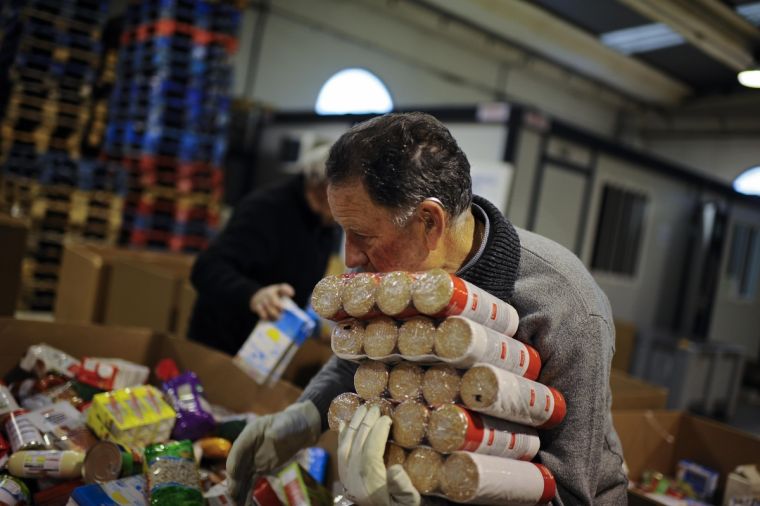Edwina Currie wrong on food banks, says charity

There has been a backlash from foodbank operators over recent comments made by Edwina Currie.
In a recent column for the Spectator's Coffee House Blog, Currie suggested that food banks are perpetuating the problem of food poverty in the UK, rather than helping to eradicate it.
"Free food subsidises low wages. It helps support the black economy. It pauperises those it seeks to help. Like giving money to 'homeless' beggars on London streets, it encourages more of what it seeks to relieve," she wrote, claiming that demand for food banks has risen simply because "if you increase the free supply of something worth having, you'll have takers queuing at the door".
She has also produced a short video showing her visiting the church-based Chelwood Foodbank Plus in Greater Manchester, and questioning whether such charitable organisations "are doing as much harm as good".
"What of longer term issues? Many people who visit food banks have very complex needs – mental illness and indebtedness to name but two. Millions of pounds are being diverted from public health budgets to pay for these food banks; money that I believe would be better spent on under-funded addiction services or mental health support.
"As a generation we seem to have forgotten all about personal responsibility. Can a tin of soup and a smile really address any of these problems?" she asks.
"Sadly, food banks may be an example of good intentions gone wrong. They are no way of lifting people out of poverty, and they could be trapping people in dependency. Living hand to mouth is no existence for anybody; this is not the way forward."
The former Tory MP was invited to speak on the BBC's Daily Politics show on 10 February, where she was challenged on her controversial views by host Jo Coburn and fellow guest Vidhya Alakeson from the Resolution Foundation.
Upon being asked if food banks are needed, she quipped: "I don't think they are as necessary as the people who run them do."
Ms Currie repeated her belief that many people take advantage of the food bank system, and claimed that it has created a culture of dependency in which the unemployed are not motivated to find work.
Ms Alakeson criticised these remarks, however, asserting that: "The majority of people who go to foodbanks would rather be paying money and going to a supermarket. Very few people love the culture of benefits and revel in the idea that they can go and get food for free."
While she agreed that support systems need to be put in place for longer term issues, "You can't replace the food that you eat with a mental health treatment programme.
"These problems are complex, but this is a crisis intervention," Alakeson concluded.
Currie refused to back down, however, and maintained her position that the provision of free food should be secondary to longer-term programmes such as day-centres.
Her comments have brought widespread criticism outside of the BBC studio. The St Vincent de Paul Society (SVP), which organises several foodbanks and was this month awarded a Big Society Award by Prime Minister David Cameron, is just one of many organisations to weigh in on the debate.
Chief Executive Elizabeth Palmer said food banks were often a vital source of support for those who are stricken by poverty.
She argued that immediate needs must be addressed before a longer-term solution becomes viable.
"In general, food bank clients are referred by third parties who have identified a genuine need and food is provided to those who are in a crisis situation," she said.
"SVP volunteers would be keen to befriend those who attend the food bank and when invited, visit them in their own homes with a view to helping them address the circumstances which have led to their visit.
"The SVP is also able to call on internal expertise such as its debt advice team, where there are underlying issues of this nature."
Palmer concluded: "Addressing the immediate need is a necessary measure in the journey to providing a longer term solution, and neither one approach devalues the other."











